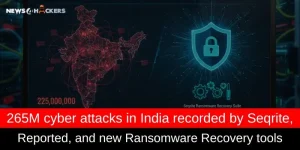ONGC Worker’s Surprising ₹27 Lakh Loss in Investment Fraud

ONGC Worker’s Surprising ₹27 Lakh Loss in Investment Fraud
An employee of ONGC was deceived out of ₹27 lakh in a stock scam by a bogus advertisement. Three suspects are charged by the police in Nagpur. Read more, about what you need to know!

An instance of fiscal impropriety pertaining to a staff member of the Oil and Natural Gas Corporation (ONGC) situated in Mumbai has surfaced. Nilesh Khapare, 35, has been identified as the deceitful recipient of an enormous loss of Rs 27 lakh, which seems to have been the result of an investment fraud involving the stock market.

Khapare, who is employed by ONGC in Mumbai for professional obligations, became entangled in what appeared to be a lucrative investment opportunity while in Nagpur. The individual was captivated by the advertisement that appeared on a social media platform. It made enticing claims of 5 to 10 percent returns on investments in the stock market.
Moreover, Khapare, motivated by the anticipated financial gains, participated in the advertisement, which resulted in the inclusion of his phone number in an exclusive group. Following his enrollment, he was subsequently issued a user ID and password, which signified his incorporation into the scheme.

Khapare, motivated by the assurance of substantial returns, wired a total of Rs 26.85 lakh into designated bank accounts. Nevertheless, this investment failed to generate the anticipated returns of both the principal and revenues, leading to his financial ruin.
Further, Khapare initiated legal proceedings in retaliation to this fraudulent activity, which resulted in the filing of a complaint against three individuals: Aryan Reddy, Pooja, and Jiya Shankar. The complaint has been filed by the authorities in accordance with multiple sections of the Information Technology Act and the Indian Penal Code (IPC), which demonstrates the seriousness of the cyber financial crime.
The Yashaodhara Nagar police station is presently conducting an investigation into the case as they further examine the circumstances pertaining to this fraudulent scheme.

Citizens are advised by the I4C division of the Home Ministry of India to exercise prudence prior to making investments on the basis of information obtained via social media or unknown WhatsApp groups.
The I4C, which stands for the “Indian Cyber Crime Coordination Centre,” is a Home Ministry-affiliated central agency charged with combating cybercrime in India. Prior to committing funds, the advisory stresses the significance of being well-informed and verifying investment opportunities.

Specific details from the I4C advisory likely include:
- Warning signs of social media investment scams: The advisory may draw attention to concerns such as impracticable assured returns, urgent investment requirements, and insufficient disclosure regarding the investment platform or organization.
- Recommendations for safe investing: I4C recommendations for secure investing may include utilizing the services of registered financial advisors, conducting platform research exclusively through official channels, and investing on legitimate websites.
- Reporting suspicious activity: Citizens may be encouraged by the advisory to notify the authorities of any dubious investment proposals they encounter on social media platforms or WhatsApp groups.
By including these particulars, one can construct a more all-encompassing depiction of the Home Ministry’s endeavors to counter investment frauds that exploit unsuspecting users of social media platforms.
About The Author:
Yogesh Naager is a content marketer who specializes in the cybersecurity and B2B space. Besides writing for the News4Hackers blog, he’s also written for brands including CollegeDunia, Utsav Fashion, and NASSCOM. Naager entered the field of content in an unusual way. He began his career as an insurance sales executive, where he developed an interest in simplifying difficult concepts. He also combines this interest with a love of narrative, which makes him a good writer in the cybersecurity field. In the bottom line, he frequently writes for Craw Security.
READ MORE ARTICLE HERE






